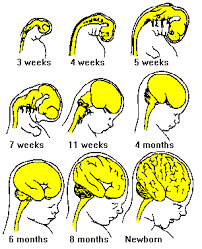Tuckmna's stages of team development
- Forming stage. It is similar to the childhood stage. Teams just formed and don't know each other, not have an understanding of the purpose of the team.
- Storming. This stage is similar to the adolescence stage. Teams will consolidate interpersonal relationships.
- Norming is similar to young adulthood. Understanding and cohesion form.
- Performing is similar to the stage of middle adulthood. This is when the team are high-performing.
- Adjourning, compared to late adulthood, is the stage when high-performance teams reached their missions and must disband.
20
60 reads
CURATED FROM
IDEAS CURATED BY
A model for analysing your teams and detecting different behaviours and patterns.
“
The idea is part of this collection:
Learn more about leadershipandmanagement with this collection
How to showcase your skills and experience
How to answer common interview questions
How to make a good first impression
Related collections
Similar ideas to Tuckmna's stages of team development
Stages of Early Brain Development
Brain development happens at different rates for different parts of the brain but here are the major trends in the construction that takes place:
- In the womb: folding of the brain's outer layer
- Newborn - childhood: the brain grows gradually and continues to...
Building Team Relationships
In one way or another, pretty much every study of team effectiveness identifies the quality of interpersonal relationships as a critical component.
There is surprisingly little evidence that people in the team have to like each other, but they do need to respect, trust an...
Beware of crossing team boundaries
As teams are increasingly working in more fluid and interconnected multiteam arrangements, it’s common for leaders and members to be tempted to manage the other teams that influence their input or output.
But it’s unlikely that a team leader will have a detailed enough und...
Read & Learn
20x Faster
without
deepstash
with
deepstash
with
deepstash
Personalized microlearning
—
100+ Learning Journeys
—
Access to 200,000+ ideas
—
Access to the mobile app
—
Unlimited idea saving
—
—
Unlimited history
—
—
Unlimited listening to ideas
—
—
Downloading & offline access
—
—
Supercharge your mind with one idea per day
Enter your email and spend 1 minute every day to learn something new.
I agree to receive email updates

